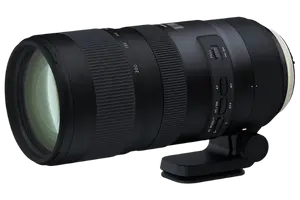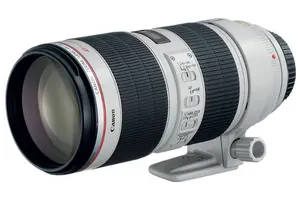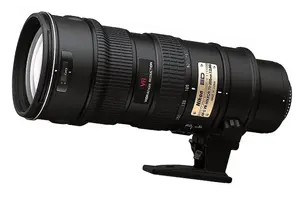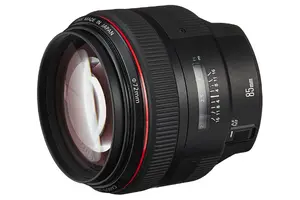If you’re passionate about photography and love horses, then equine photography is definitely for you!
Capturing the power and beauty of these animals on film is a challenging but rewarding pursuit. In order to take the best photos possible, it’s important to use the right tools.
Looking for a quick answer? In short, the must-have lenses for Equine Photography are the highly rated Tamron SP 70-200mm F/2.8 Di VC G2 and the EF 70-200mm f/2.8L IS II USM Telephoto Zoom Lens
Just as there are different types of cameras for every kind of photographer including the cameras for equine photography, there are also different lenses made to capture specific subjects in the best way possible.
If you’re into equine photography, then you’ll want to make sure you have these 5 lenses in your camera bag! Let’s look at each of these lenses and why they are so important for this type of photography.
Contents
5 Best Lenses for Equine Photography in 2025
If you’re an equine photographer, you know that having the right lens is crucial to getting the perfect shot. Here are our top five lenses for equine photography in 2025:
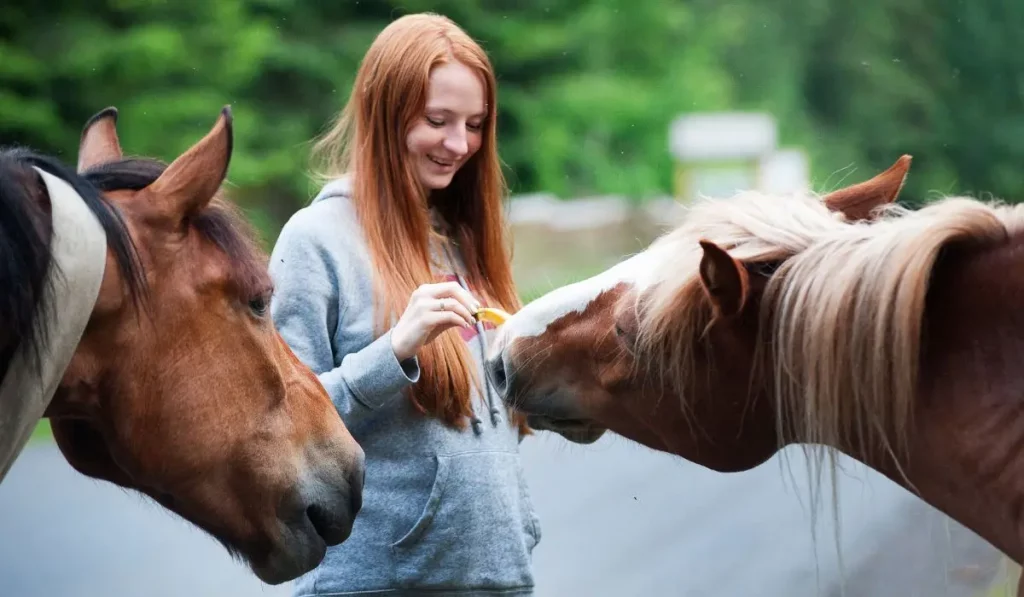
1. Tamron 70-200mm 2.8f lens
Anyone looking for the absolute best lens for equine photography should consider the Tamron SP 70-200mm F/2.8 Di VC G2.
Tamron 70-200 lens features a fast maximum aperture of f/2.8, which is perfect for low light conditions, horse photography, and capturing action shots. The image quality is superb, and the build quality is very good.
The autofocus is fast and accurate, and the VC (vibration compensation) works well.
The lens is compatible with teleconverters, making it a versatile option for photographers. This lens is the first-ever invention to add vibration control to images; the VC up-gradation is alone enough to make you stunned by the image quality.
The 70-200mm focal length lets you bring more to the image; the zooming aspect of the lens is improved to define quality at its best.
Portrait equine photography at this focal length offers the diagonal angles you need to capture your horse’s curves.
Whether going out to the backyard or countryside to capture the natural beauty of horses, Tamron 70-200mm camera lens is pretty convenient to carry; the overall weight of the lens is 3.28 pounds, which is pretty light. Besides the weight, the lens also features an Arca-Swiss style quick release and tripod mount.
Tamron 70-200mm camera lens deserves extra appreciation for the VC upgrade.
This feature offers three VC shooting modes; depending on the situation, select accordingly. The improved image quality with this upgrade is perfect for every moment.
This protective layer saves the lens element from water and oil damage.
The only downside is the price(around $1200), but for the quality of this lens, it is definitely worth it. Highly recommended!
2. Canon EF 70-200mm f/2.8L
The Canon EF 70-200mm f/2.8L Lens is another great option for anyone looking for a high-quality lens for equine photography.
This 70-200mm L family camera lens is well-known for its top-notch image quality with fast and accurate capturing.
With its 23 elements in 19 groups of lens construction (1 fluorite and 5 UD elements), the lens is able to deliver superb image quality with minimal distortion and chromatic aberration.
The inner focusing system with USM and full-time manual focus option also ensure that you’re able to fine-tune your shots with ease, while the 77 mm filter size means that you can use a variety of different filters and attachments with the lens.
And, if you need extra reach, the lens is also compatible with Canon’s EF Extender 1.4x III and EF Extender 2x III extenders.
With the focal length of 70-200mm, there is nothing you can miss out on to add to the image. The maximum aperture this lens offers is 1:2.8 which is perfect for horse photography.
The internal ultrasonic motor this Canon camera lens features is something at the next level. The ring USM of this lens captures the moments with accuracy.
The autofocusing is super-fast in action with a 2.8/f wide contrast aperture.
Dull colors with sharp lightning are what spoil the image quality. Let them be filtered with the 7mm filter.
This 7mm filter makes sure the colors are bright, the lighting is accurate, with minimum glare and reflection.
Canon 70-200mm camera lens features high-speed ring USM to let you capture every moment with accuracy. This ultrasonic motor uses ultra-fast technology to not miss out on any pose.
Whether you’re a professional photographer or an amateur enthusiast, the Canon EF 70-200mm f/2.8L IS II USM Telephoto Zoom Lens is a great choice for equine photography.
3. Nikon 70-200mm f/2.8G
Above we’ve talked about the lens from Tamron and Canon with the same focal length and aperture.
But, if you loved cameras and lenses from Nikon, then this Nikon 70-200mm f/2.8G lens is your go-to option for equine photography.
The Nikon 70-200mm f/2.8G ED VR II AF-S Nikkor Zoom Lens is perfect for capturing stunning images of horses.
What makes this lens the best lens for equine photography is the ED optical element. The Extra-low dispersion element delivers extra sharp and vibrant images than the competing camera lenses.
This lens is fast and has a constant aperture of f/2.8, which makes it an ideal choice for low-light photography.
It also features VR II image stabilization, which helps to keep your photos sharp and in focus, even when you’re shooting handheld. Plus, the built-in Nano Crystal Coat helps to reduce flare and ghosting in your photos.
And with a minimum focus distance of 1.40m/55.12″, you’ll be able to get close to your subject and capture stunning detail. Bring as much as you to the image, as you got an improved zooming effect.
This Nikon lens is designed to capture every moment- being part of the 70-200mm focal length family. The VR II offers full-frame images at an incredible speed.
Unlike the other lenses of equine photography that offer poor autofocusing, Nikon 70-200mm camera lens delivers manual focusing. The ultrasonic AF motor is designed to keep an eye on every detail.
The moment you hold this camera lens, you figure out this will last a lifetime. The solid metallic body can effortlessly withstand weather damages. Even if it falls on the ground, the lens will stay upright (all thanks to the long-lasting in-built quality).
So if you’re looking for a versatile lens from Nikon that can handle a variety of photography scenarios, the Nikon 70-200mm f/2.8G ED VR II AF-S Nikkor is an excellent lens to have.
4. Canon 135mm f/2.0
The Canon EF 135mm f/2L USM Lens is a prime telephoto lens that’s perfect for capturing horses’ portraits and bokeh photography.
Canon, 135mm f/2.0 is a high-graded, fast in action lens, and offers sharp image quality. The enormously wide f/2.0 aperture is extra-fast for the focal length.
Capturing a horse’s photos has never been an easy task. Despite setting up a whole setup, you never know when the horse will pose. That is why the micro ultrasonic motor is here!
The micro ultrasonic motor locks every moment at the right time. The accuracy rate of this motor is simply amazing.
Do you want vibrant and sharp color images every time? No worries; The ultra-low dispersion got you covered. This feature makes sure the images are sharp with vibrant colors. Also, the in-built stabilizer reduces the blurring effect.
The focused object is smooth and vibrant in color, but what about the rest? The 9-blade aperture feature makes sure the out-of-focus objects are also smooth and sharp as the focused ones. It improves the image’s quality and image stabilization.
Holding the camera and running after horses to capture the jaw-dropping pose?
What if the lens is heavy; won’t you get tired of this run and catch the game? Canon 135mm f/2.0 weighs only 1.7 pounds, making it the best lightweight lens for equine photography. The body is slim and sleek for an easy grip besides the weight.
Despite all the good about the lens, I would only suggest this lens to those who are planning to buy a lens to capture horse portraits and bokeh shots.
5. Canon 85mm 1.2 L
Let us wrap up the review section of the best lens for equine photography with the Canon EF 85mm 1.2 L camera lens.
The Canon EF 85mm f1.2L II USM Lens is a medium telephoto lens that’s specially designed for Canon DSLR cameras. This lens has a focal length of 85mm, and it can produce beautiful, shallow depth-of-field effects.
It also has a fast maximum aperture of f/1.2, which makes it perfect for shooting in low-light conditions.
Plus, the Canon EF 85mm f1.2L II USM Lens has a ring-type UltraSonic motor (USM) that provides fast and quiet autofocus performance.
I can’t say about you, but I’m a fan of the focusing feature of this camera lens. The high-speed AF focusing aperture creates a circle around the main object and smoothens the quality, while the rest is blurred with vibrant colors.
It helps you capture high-quality images with improved focusing.
High-speed AF Focusing
I can’t say about you, but I’m a fan of the focusing feature of this camera lens.
The high-speed AF focusing aperture creates a circle around the main object and smoothens the quality, while the rest is blurred with vibrant colors. It helps you capture high-quality images with improved focusing.
Aspherical lens element
Besides the in-built image stabilizer, Canon EF 85mm 1.2 L camera lens also features an aspherical lens element. This lens element reduces the high-contrast lighting, smoothens the colors, and reduces the blurring motion effect.
High-speed CPU
Accurate capturing at a fast rate; is what the Canon EF 85mm 1.2 L camera lens promises to offer. The high-speed CPU unit with an optimized algorithm offers a 1.8xs faster capturing rate than the competitors, making it the best lens for equine photography.
Compact and Lightweight Design
Canon EF 85mm 1.2 L camera lens belongs to the lightweight and compact lenses family. The overall weight of the lens is 2.26 pounds- with a sleek and compact design.
The style is even compact so that you can fit it in your handbag. Amazing, right?
Overall, the Canon EF 85mm 1.2L is a great lens for equine photography and if you’re looking for an 85mm lens then definitely it worth the shot.
Buying Guide: How to Choose a Lens for Equine Photography
When it comes to equine photography, lenses are just as important as the camera itself. The right lens will allow you to capture the perfect shot every time. But with so many different lenses on the market, it can be tough to know which one is right for you.
Here are a few things to keep in mind when choosing a lens for equine photography:
1. Focal Length of 70-200mm
This is perhaps the most important factor to consider when choosing a lens for equine photography. The focal length will determine how close or far away you can be from your subject. If you want to take close-up shots of the horse, then you’ll need a lens with a short focal length.
For full-body shots, you’ll need a lens with a longer focal length.
For equine photography, the best lenses are with a focal length of 70-200mm. This focal length gives you the ability to capture both close-ups of your horse as well as full-body shots.
Along with 70-200mm lenses, 50mm and 85mm lenses can be considered for equine photography. These lenses provide a wider field of view, which can be helpful when taking.
Just be aware of the distortion issues that can come with using a shorter focal length lens.
For horse photography, an ideal focal length is 150mm-200mm. That’s why 70-200mm lenses are the best and highly recommended.
2. Aperture
The aperture is the opening in the lens that allows light to pass through. A wider aperture will allow more light to pass through, which is ideal for low-light situations.
A narrower aperture will allow less light to pass through, which is better for bright conditions. Along with a 70-200mm, focal length lens with an f/2.8 aperture is perfect for horse photography.
3. Image stabilization
This is a feature that helps reduce camera shake, particularly when taking photos in low-light situations. It’s definitely something to look for if you plan on doing a lot of equine photography.
At some point when the shutter speed drops the image stabilization can cover and still you’ll get sharp pictures.
4. Autofocus
Most lenses nowadays come with autofocus, but it’s still something to keep in mind when choosing a lens. Horses are constantly moving, so you’ll need a lens that can keep up. Look for lenses with fast and accurate autofocus capabilities.
5. Budget: How Much Should You Spend on a Lens for Equine Photography?
As with any type of photography, the amount you spend on a lens will depend on your budget and what you’re looking to get out of the lens.
If you’re just starting out, then I would recommend buying a less expensive lens. You can always upgrade later on as you get more experience and start to take better photos.
On the other hand, if you’re a professional photographer or you’re serious about equine photography, then you’ll want to invest in a high-quality lens.
These lenses can be quite expensive, but they’re worth the money if you plan on doing a lot of equine photography.
No matter what your budget is, there’s a lens out there that’s perfect for you.
7 Basic But most important Tips for Equine Photography
If you’re interested in equine photography, then there are a few things you need to keep in mind. Here are seven tips for taking great photos of horses:
- Get close to your subject. This will help you capture all the details in your photos
- Use a telephoto lens. This will help you capture close-up shots of your subject
- Use a fast shutter speed. This will help you freeze the action in your photos
- Use a low ISO. This will help you avoid noise in your photos
- Use a tripod. This will help you keep your camera still while you’re taking photos
- Use a remote shutter release. This will help you avoid shaking in your photos
- Be patient. This will help you get the best photos possible
By following these tips, you’ll be able to take great photos of horses. So don’t wait any longer, get out there and start photographing horses today!
FAQ’s
Best Nikon lens for equine photography
Nikon 70-200mm f/2.8G ED VR II AF-S Nikkor Zoom Lens is the best nikon lens for equine photography. This is an excellent all-purpose lens that can be used for a variety of photography genres, including equine photography.
It has a fast aperture of f/2.8G as well as a versatile zoom range that will allow you to capture both close-up and wide shots. The lens is also weather-sealed, making it ideal for shooting in all types of conditions.
Best canon lens for equine photography
Canon EF 70-200mm f/2.8L is the best lens for equine photography. It has a fast aperture of f/2.8 and a focal length of 70-200mm.
This makes it ideal for capturing images of horses in any light. The lens is also weather-resistant and has a built-in image stabilization system.
What is the best lens for equine photography?
This is a difficult question to answer as it depends on what you are trying to achieve with your photography. If you are wanting to capture close-up detail shots, portraits, or bokeh photos then 85mm and 135mm lenses would be ideal.
However, if you are wanting to capture wide shots of horses in their environment, then a 70-200mm f/2.8L lens would be better suited.
In general, though, the following lenses would be great for equine photography:
- Tamron 70-200mm 2.8f lens
- Canon EF 70-200mm f/2.8L
- Nikon 70-200mm f/2.8G ED VR II AF-S Nikkor Zoom Lens
- Canon 135mm f/2.0 great for portrait and bokeh
- Canon 85mm 1.2 L
Conclusion
No matter what lens you choose, practice and experimentation are key to becoming a great equine photographer. The best way to learn is by getting out there and shooting as often as you can.
If you’re serious about equine photography, investing in a 70-200mm f/2.8 is worth the price. With this lens, you’ll be able to capture stunning photos of horses no matter what the situation.
You can also get 85mm and 135mm lenses for capturing portraits and bokeh but 90% of the time 70-200mm f2.8 lens will be your go-to option.
So there you have it, my top five lenses for equine photography with a detailed guide.
